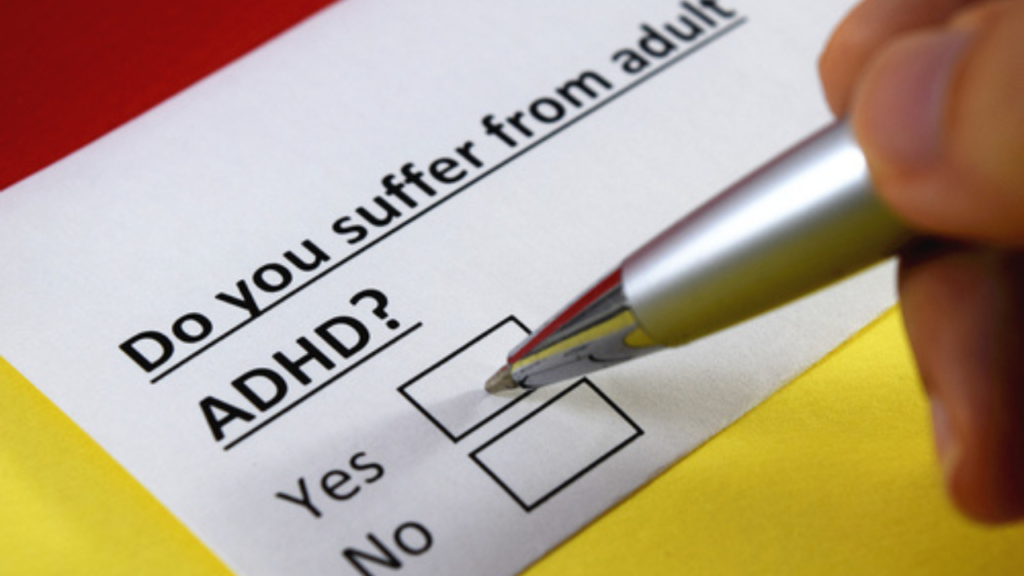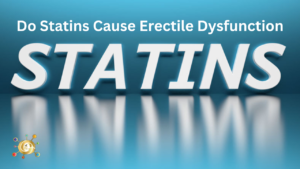As the stigma against mental health continues to decrease, more adults are seeking evaluation when they think they might have a psychiatric disorder. Attention Deficit Hyperactivity Disorder (ADHD) is the most common neurodevelopmental disorder in children, and it often persists into adulthood. Many adults remain undiagnosed, according to Jennifer Minami, MD, a psychiatrist at Loma Linda University Behavioral Health. Receiving a new diagnosis of adult ADHD can be overwhelming, but it can be managed successfully with the proper support and information.
ADHD is a complex brain-based disorder that manifests in people’s lives by creating difficulty with focusing on tasks, quickly feeling restless, and managing their time. Additionally, they may need help with organization forgetfulness and experience trouble following instructions or conversations without getting distracted.
“While a full understanding of ADHD’s causes is not clear, we do know it is a highly heritable condition, meaning that there is a significant genetic component to its cause,” Minami says.
Not only do individuals with ADHD function differently, but Minami also says there are structural differences in the brain compared to those without ADHD.
“The prefrontal cortex, responsible for many important brain functions, can be impaired in individuals with ADHD. Some essential functions include organization, impulse control, and time management,” Minami says.
Challenges specific to ADHD in adulthood
Poor time management and concentration, forgetfulness, and procrastination are a few symptoms that impact an adult’s work or higher education performance. Studies show adults with ADHD are more likely to face difficulty gaining and maintaining employment compared to neurotypical adults, especially if they did not receive treatment in childhood.
“In clinical practice, I will often evaluate individuals with undiagnosed ADHD who have come to label themselves as ‘lazy,’ constantly frustrated by a feeling of underachievement and lifelong pattern of procrastination,” Minami says.
Other symptoms associated with ADHD, like low frustration tolerance, impulsivity, and speaking out of turn, can cause strain on relationships. According to Minami, the first component of treatment is education for the individual diagnosed and the significant individuals in their lives, such as partners or people they live with. She says educating all parties on ADHD causes, symptoms, and treatment helps reduce blame on the individual for the interpersonal strain often caused by ADHD. It also increases partnership in the treatment plan.
Attention-Deficit/Hyperactivity Disorder (ADHD) is a complex and often misunderstood condition that impacts millions of individuals worldwide. Contrary to popular belief, ADHD is not just a childhood disorder – it affects people of all ages and can manifest in various ways. While the term “ADHD” is often tossed around casually in conversations, there’s a lot more to this condition than just a short attention span or hyperactivity.
In this blog, we’ll shed light on the complexities and debunk common misconceptions surrounding ADHD. We’ll explore the various facets of ADHD, including its symptoms, diagnosis, and treatment options while emphasizing the immense potential and unique strengths that individuals with ADHD possess. Additionally, we’ll provide insights into obtaining an online ADHD diagnosis, offering a convenient and accessible path to understanding and addressing this condition.
Understanding ADHD: What is it and who does it affect?
ADHD isn’t a new phenomenon. It’s been recognized in the medical community for over a century. In simplest terms, ADHD is a neurological condition characterized by impairments in executive functions such as attention, impulsivity, and emotional regulation. These symptoms can impact various aspects of daily functioning, such as work, school, relationships, and self-care.
While the exact causes of ADHD are not fully understood, research suggests a combination of genetic and environmental factors can contribute to its development. It’s important to note that ADHD is not a result of poor parenting, laziness, or lack of willpower – it’s a legitimate medical condition that requires professional treatment.
ADHD Symptoms and Subtypes
ADHD is not a one-size-fits-all condition. While the most common symptoms are inattention, hyperactivity, and impulsivity, there are many ways ADHD can present itself. Some individuals may have primarily inattentive symptoms, such as difficulty with focus, organization, and forgetfulness. Others may have predominantly hyperactive symptoms, such as fidgeting, restlessness, and interrupting others. And still, others may have a combination of both.
These different presentations are referred to as subtypes of ADHD, and they can impact how an individual experiences and copes with the condition. Keep in mind not all people with ADHD share the same experience, and each person’s experience is unique.
Diagnosis and Treatment Options
If you suspect you or someone you know may have ADHD, then consider seeking the advice of an expert. A qualified healthcare professional, such as a psychiatrist or therapist, can provide a comprehensive evaluation to determine if ADHD is present and to what extent. This evaluation typically includes a clinical interview, cognitive and behavioral assessments, and input from family members or other relevant parties.
If a diagnosis of ADHD is made, there are several treatment options available, including medication, therapy, coaching, and lifestyle changes. But remember, treatment for ADHD is not a one-size-fits-all approach – what works for one person may not work for another. It may take some trial and error to find the right treatment plan, but with patience and persistence, many individuals with ADHD can find significant relief from their symptoms.
Harnessing Strengths: The Positive Side of ADHD
While ADHD can present many challenges, individuals with ADHD also display unique strengths and talents. These may include creativity, hyperfocus, spontaneity, and a “thinking outside the box” mentality. While these strengths may not always be apparent, they can be harnessed with the right support and encouragement. With the proper mindset and help, individuals with ADHD can learn to embrace their strengths, manage their challenges, and thrive in their personal and professional lives.
Strategies for Thriving with ADHD
Here are a few practical insights and strategies for navigating life with ADHD:
- Seek an online ADHD diagnosis and professional support if you suspect you have ADHD – it’s never too late to get help.
- Educate yourself and others about ADHD to reduce stigma and increase understanding.
- Develop a toolbox of strategies and accommodations that work for you, such as using a planner, taking breaks, or engaging in physical activity.
- Explore medication options with a licensed prescriber.
- Practice self-compassion and celebrate your strengths.
- Surround yourself with people who understand and support you.
What to expect when seeking help
Evaluation
Many psychiatrists and psychiatric nurse practitioners can diagnose and treat ADHD. Minami says good questions to ask any clinical provider from whom you are considering seeking treatment:
– What is your training and experience in treating ADHD?
– What kind of treatments for ADHD do you offer?
– What does an evaluation for ADHD with you entail?
Minami says a comprehensive evaluation for ADHD will include a thorough history of symptoms dating back to childhood, multiple people providing information about the individual, medical and family history, and an assessment for other psychiatric conditions that are either co-occurring or account for the individual’s symptoms that they think are due to ADHD. For example, anxiety and depression often present with symptoms that appear to be due to ADHD, according to Minami. Substance use disorders are also much higher in individuals with ADHD than those without. Significant substance use can be another factor that affects one’s ability to concentrate, organize themselves, and persist through tasks and needs to be considered. The final step of a comprehensive evaluation may include neuropsychological testing.
Medication treatment
Studies show stimulants are the most effective and commonly prescribed medications for ADHD treatment and lead to a significant reduction in symptoms in 70% of adults. Daily medication can reduce interruptive behavior, fidgeting, and other hyperactive symptoms.
Minami says non-stimulants are not as effective in reducing the symptoms of ADHD; however, they are helpful in the following circumstances:
- Stimulants didn’t lead to enough reduction of symptoms
- Stimuli are causing side effects that can’t be managed or tolerated (such as weight loss or insomnia)
- Concerning substance use issues
- For individuals who have other mental health conditions, a particular non-stimulant has been shown to help. For example, some are helpful for individuals with co-occurring anxiety, tics, or depression.
Psychotherapy
Cognitive behavioral therapy (CBT) is a goal-oriented form of psychotherapy that aims to change negative thinking patterns and change how a patient feels about themself, their abilities, and their future. Minami says CBT is effective for addressing the issues of self-esteem, anxiety, and depression that accompany ADHD.




